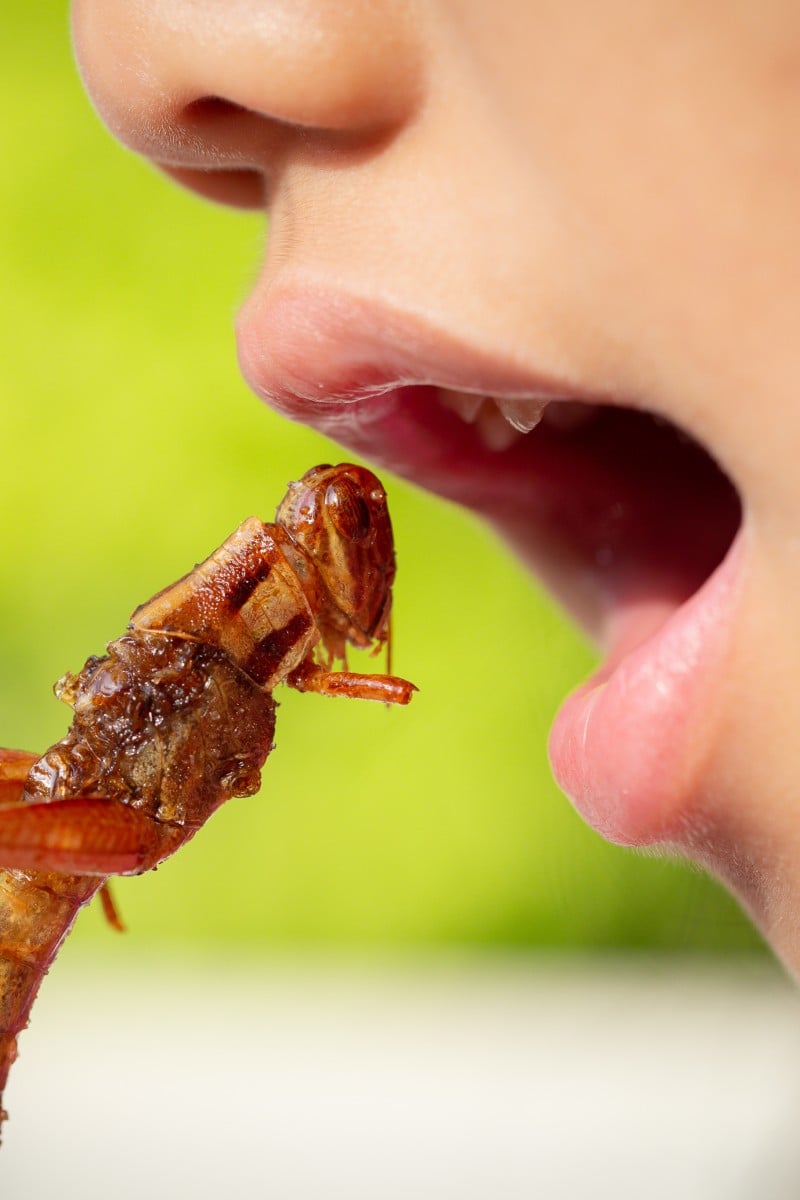
Your Voice: Why you should eat bugs; overtourism and the downside of going viral (short letters)
- Insects are a more eco-friendly source of protein than beef, pork and chicken, one student writes
- Others explain the importance of responsible tourism, promoting Hong Kong’s neon lights, and dealing with appearance anxiety
 Bugs are a more eco-friendly source of protein than beef, pork and chicken. Photo: Shutterstock
Bugs are a more eco-friendly source of protein than beef, pork and chicken. Photo: ShutterstockHave something to say? Send us a letter using this Google form.
Eat bugs to save the world
Sophie Christina Donohugh, Hong Kong International School
In January, the European Union approved two types of insects for sale as food: house crickets and the larvae of mealworms. Reactions have ranged from apprehension to all-out disgust. But should we be eating insects? Many conservationists and environmentalists think we should.
The number of people suffering from food insecurity has reached 345 million, according to the NGO, World Food Programme. This is due to the supply-chain disruptions of Covid-19, and the effects of climate change. Thus, traditional sources of protein, such as cattle, are unable to feed the world.
What is lab-grown meat? Is it better for the environment?
Why insects? These critters are eco-friendly superfoods, requiring fewer resources to produce than other livestock. Insects emit fewer greenhouse gases and need much less water and farmland to raise than cattle do. The result is an eco-friendly protein source with a low carbon footprint.
The UN has found that insects are “rich in protein and good fats and high in calcium, iron and zinc”. With their high levels of nutrients, insects are good for us.
We must keep an open mind, even if the idea is initially off-putting. Challenge yourself to try insect protein this year.
Think before you add geotags
Valerie Chiu Wing-yee, St Mary’s Canossian College
You may have found solace during the pandemic by exploring the great outdoors. Like others, you might have shared your experiences on social media, including geotagging the location.
However, when a spot becomes popular on social media, it can attract many visitors, resulting in noise, litter and other negative impacts. Disposable utensils and masks left behind by visitors have also become a common sight in many scenic spots.
Making a place go viral can have unintended consequences. For example, a photo of a lake in Germany posted on social media caused a surge of visitors, leading to trampled paths and litter.
UN World Heritage sites in danger due to climate change and overtourism
While boycotting geotags may not be a solution, public education can help promote responsible tourism. Governments can initiate campaigns to encourage sustainable visits. This can include promoting Leave No Trace principles, responsible camping and eco-friendly travel options.
By raising awareness, we can reduce the negative impact of overtourism on the environment and preserve the beauty of natural areas for future generations.
It’s important to be mindful of the impact of our social media posts. You can make a difference by promoting sustainable tourism.
Don’t let the neon fade
Phoebe Chang Wai-lam, Pope Paul VI College
I read with interest the article “Hot Topics: What is the future of Hong Kong’s neon signs?” (April 24). As a resident of this vibrant city, I am deeply concerned about the fate of its iconic neon signs.
While I understand that the government is taking measures to ensure the safety of its citizens and reduce light pollution by regulating neon signboards, those policies should not come at the cost of Hong Kong’s history and culture. Neon signs have been a fundamental part of the city’s landscape for many years, and they represent its vitality.
I urge the authorities to find a balance between ensuring the structural safety of these signboards while preserving the colourful legacy of Hong Kong.
Instead of completely banning them, concerted efforts could be made to repair and maintain these signboards and to make sure that they meet safety standards. This could be done through collaborating with NGOs to bring back these signs and keep them in good condition.
After all, Hong Kong’s neon signboards represent our city’s character and way of life. We must work together to preserve this iconic component of Hong Kong culture while ensuring its structural safety.
Hong Kong’s young ‘neon nomads’ keep a dying trade flickering
We must face our fears
Agnes Ng, St Paul’s Secondary School
Following the end of the mask mandate, most students continue to wear masks. It is clear that the issue of appearance anxiety is prevalent as students are afraid of being judged by their looks. Some may think that social media is the culprit as it has set unrealistic beauty standards for us to follow. However, I believe students should instead overcome their fear of judgment.
Sometimes, people might glance at you when you’re not wearing a mask. But that does not mean anything. If you think they are judging your appearance, chances are that you are too harsh on yourself. Often, that deeply-rooted fear comes from how we view ourselves rather than how others see us. Those who have social anxiety overthink it and have a persistent fear of being judged.
Don’t judge people who keep their masks on
In this digital world, everyone can criticise others without a second thought. We must learn to feel comfortable in our own skin. The ideal way to cope with this anxiety is to think positively. Don’t take others’ judgment personally. Accept that we are imperfect.
We can’t hide behind masks forever. Therefore, we should all tackle the fear of judgment and just remove our masks.
